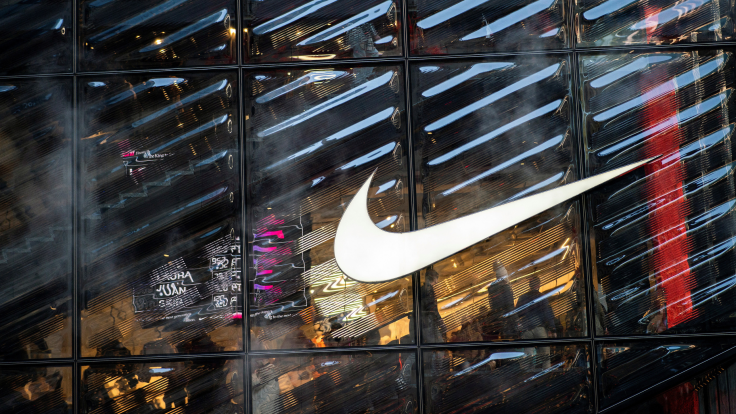
Nike has taken the wraps off a collection of 13 ultra-modern athletic shoes designed with the help of artificial intelligence (AI) for elite athletes like Kylian Mbappé ahead of this summer's Paris Olympics.
The recently concluded event at the Palais Brongniart in Paris gave attendees a glimpse into Nike's prototype shoes. According to Nike, the prototype shoes are designed for athletes like sprinter Sha'Carri Richardson, marathoner Eliud Kipchoge, and NBA star Victor Wembanyama.
So Nike needed AI to design shoes. People don’t know how to design shoes anymore?? https://t.co/o8YCXUgTIq
— Jabari Olatunde Billions 🤲🏾 (@JOBChapter42) April 12, 2024
The prototype shoes' outward appearance, which is unlikely to hit the store shelves in the future, boasts an impressive array of features, including a helix of fabric curling up the ankle of Richardson's deeply track shoes. Likewise, the back of Mbappé's model has a spiky, transparent fin.
Can AI Help Nike Regain Its Footing?
Nike created these futuristic prototypes by combining athlete input with AI. The company interviewed top stars like Mbappé, then fed their design concepts into AI models to generate innovative shoe ideas.
Nike incorporated these models into its "AIR" (Athlete Imagined Revolution) collection, a clever nod to the AI design process and its iconic Air technology—the gas-filled bubbles in shoe soles that have been a Nike hallmark since the 1970s.
Nike’s A.I.R. lineup of future footwear concepts — featuring AI-informed designs representing “a new co-creation process between teams of Nike designers & innovators and the brand’s elite athletes.” pic.twitter.com/uzs4h4enO6
— Nick DePaula (@NickDePaula) April 12, 2024
"There's no going back," John Hoke, the brand's chief innovation officer, said in a news release. "Form and function — meet fantasy."
Beyond the AI-powered footwear, the Paris event offered a glimpse into Nike's Olympic future. Attendees experienced AR-enhanced statues of legendary athletes like LeBron James, a long-time Nike partner with a lifetime deal signed in 2015. They also got a sneak peek at national team uniforms and mingled with celebrities like rapper Travis Scott.
Nike Picks The Palais Brongniart For Product Launch
For its biggest product launch in recent memory, Nike opted for a dramatic setting—the Palais Brongniart, the former Paris stock exchange. At the recently concluded event, Nike showcased a slew of exciting innovations.
After a challenging year, the company hopes these products will help it revive its fortunes. The products included an upgraded Alphafly marathon shoe, enhanced track spikes, new football boots, and a basketball shoe.
Des statues géantes de Kylian Mbappé, Bebe Vio, LeBron James et Sha'Carri Richardson sont actuellement exposées par Nike au Palais Brongniart, 16 Place de La bourse à Paris, dans le cadre de l'événement #NikeAtheletesOnAir 🏅 pic.twitter.com/EAFALGxUIy
— TrenteTroisDegrés (@33Degres) April 11, 2024
However, the show's stars were the 41st iteration of the Pegasus, a cornerstone of Nike's running line, and a premium version receiving a fast-tracked launch. "Force and speed are part of our machine going forward," Heidi O'Neill, Nike's president of consumer and marketplace, said in an interview. "We cut almost an entire year off of the innovation."
Nike has gone crazy again!
— Tim Roozendaal (@tim_roozendaal) April 12, 2024
They just teased their brand new model:
The Nike Pegasus Premium.
A daily trainer with a full-length Air Zoom system.
Expected to be launched in spring 2025.
I don't know how functional this will be, but it definitely looks cool. pic.twitter.com/GeJKMuouKD
Unveiled just before the 2024 Paris Olympics, these shoes mark the beginning of Nike's crucial three-year product cycle. With a palpable sense of urgency, the sportswear giant's leadership aims to shape the company's future through these innovations.
Nike has faced recent challenges, including slowing sales, inventory issues, and criticism from Paralympian Stef Reid for not offering single shoes for amputees.
In December, CEO John Donahoe implemented a cost-cutting plan targeting £1.61 billion ($2 billion) in savings over three years. This strategy includes workforce reductions impacting approximately 2% of employees.
Bloomberg reported that Wall Street frets over Nike's slowing sales, concerns over reliance on established models, and a lack of fresh releases. The shoe company expects a low single-digit revenue decline in the first half of its fiscal year (starting June). This news comes as Nike's stock price has dipped 15% year-to-date.







